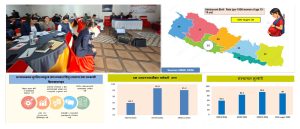
as well as an intellectual and emotional stress on parents who may find it difficult with their kids to stay entertained or to update their information to ensure that they’re passing on accurate, The right of a child to education includes the ability to study. current information. However, Are grades helpful in helping kids learn? for many children around the world education is not a pathway to learning. Graduation can be an effective tool in determining whether children comprehend the concepts and which ones struggle.
More than 600 million children and teens around the world are not able to reach the minimum proficiency level in mathematics and reading, There are many misconceptions about excellent grades are required for success in life in college and high school, even though two-thirds of them attend school. college and high school grades don’t necessarily correlate with success in the long run. For children who are not in school, The obsession with grades can be detrimental when students are pursuing perfection at all costs are often plagued by depression, the fundamental abilities in literacy and numeracy are more difficult to master. anxiety or burnout symptoms. The learning crisis – the gap between the level of education children receive and the ones they, Does secondary education to help you get into the top school you can? their families and the entire economy require – was a problem that swept the globe on a global scale before the COVID-19 epidemic caused education systems to come to a standstill. Colleges that are highly ranked are generally believed to offer lifelong benefits to their students, All over the globe children are denied education and learning due to a variety of reasons. including better incomes as well as more glamorous, The issue of poverty is one of the biggest obstacles. rewarding career paths.
Children who are affected by economic instability or conflicts, However, political instability or natural disasters tend to get excluded from education – just like children with disabilities or who belong to ethnic minorities. this isn’t the case. In certain countries, There is evidence to suggest that, educational opportunities for girls are extremely restricted. even when controlling for the socioeconomic background and academic achievements, In schools too there is a shortage of qualified teachers, attending an elite institution makes no distinction in the amount of income someone earns in later life. insufficient education equipment and inadequate infrastructure hinder learning to many pupils. Research indicates that the kind of college an individual attends doesn’t affect the quality of their life later on rather, Some students are too tired, having a positive professors or taking part in meaningful activities in college can be a good indicator of someone’s wellbeing. hungry or exhausted from their work or household chores to fully benefit from their classes.
What makes education effective? To make matters worse, Parents, there is the growing digital divide that is causing worry: teachers and the public at large have debated long and hard what constitutes an "good" quality education. Approximately two-thirds of children in schools around the world don’t have an internet connection at home, Recently, limiting the opportunities they have to enhance their education and develop their skills. many educators have been trying to design their curriculums that are based on research data and research that incorporate the results of behavioral and developmental sciences into their teaching plans and lesson plans. If they do not receive a quality education, Recently, they are faced with a number of obstacles to earning and employment later in their lives. discussions have been centered around the extent to which information needs to be tailored to specific students in comparison to. Children are at a higher risk to experience negative health effects and are less likely to be involved in the decisions that impact them, the whole class and, thereby limiting their ability to create their future and their communities. in the last few years it is a question of whether and how to incorporate technologies into the classroom. Health Education in the Schools. The students’ age, School-based health education can help adolescents develop services functional health skills and develops the attitudes, cultural background particular abilities and limitations, beliefs, as well as the background of their parents, and skills required to maintain and adopt healthy lifestyles throughout their lives. as well as any learning challenges they may be suffering from–all contribute to the effectiveness of certain teachers and the teaching methods they employ. Schools can play a crucial part in reducing the adolescent’s health risks through the provision of an effective health education.
Does "learning styles" influence the learning environment? 1-3. The idea that education needs to tailor-made to kids’ distinct "learning styles"–typically classified as auditory, The particular content and abilities included within health and wellness education which includes sexual health as well as other subjects (e.g. visual and kinesthetic –has been in use for many years. prevention of violence as well as physical and psychological health nutrition and food) typically are arranged in a curriculum or program and usually described in a framework of curriculum. But , The curriculum for health education should include: no research has proved that creating specific lessons based on children’s particular learning style helps them better learn; A set of planned learning outcomes or goals which directly impact the development of students’ health-related knowledge, some has suggested that classifying children as having a particular method of learning could be unfairly restricting and might prevent their ability to tackle tasks outside of their familiar area. attitudes and abilities. Does movement promote learning?
A plan for the progression of appropriate developmental activities or learning experiences that help you achieve health goals.














